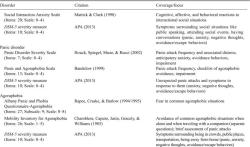Is the IAT test reliable?
The reliability of the Implicit Association Test (IAT) has been a subject of debate and research within the field of psychology. Reliability refers to the consistency or stability of test results when the same individual takes the test multiple times. Here are some key points to consider when evaluating the reliability of the IAT:
Moderate Test-Retest Reliability: Research has shown that the IAT has moderate test-retest reliability, meaning that if the same individual takes the test on different occasions, their scores may vary to some extent. This suggests that IAT results for a given individual may not be highly consistent over time.
Variability in Scores: Individuals can exhibit variability in their IAT scores, even when their attitudes or biases have not significantly changed. Factors such as mood, fatigue, and contextual influences can affect IAT performance and contribute to score variability.
Sensitivity to Context: The IAT's reliability can be influenced by contextual factors, including the specific wording or framing of the test. Small changes in the way questions are presented or instructions are given can lead to differences in results.
Cultural and Societal Differences: The IAT's reliability can vary across different cultural and social groups. Some studies have found that the test may yield different results for individuals from diverse cultural backgrounds, suggesting that it may not be equally reliable for all populations.
Shortcomings and Critiques: Critics of the IAT have raised concerns about its transparency, methodology, and limitations. These critiques have contributed to ongoing debates about the test's reliability and validity.
Ongoing Research: Psychologists and researchers continue to study the IAT and explore ways to improve its reliability. Some efforts focus on refining the test's methodology and reducing variability in scores.
Use as a Research Tool: Despite its limitations, the IAT has been used in research to investigate implicit biases and attitudes at a group level. It has provided insights into societal attitudes and has generated valuable discussions about implicit biases.
In summary, the IAT has demonstrated moderate test-retest reliability, but its reliability can be influenced by a variety of factors, including individual variability, contextual influences, and cultural differences. While the IAT has been a valuable tool for exploring implicit biases, it is important to interpret individual test scores with caution and to consider the broader context and limitations of the test when using it in research or assessment. Researchers continue to work on improving the IAT's reliability and addressing its limitations.
The Reliability of the IAT Test: Assessing Its Consistency
The reliability of a test is its ability to produce consistent results over time. In other words, if a person takes the IAT test twice, the results should be similar.
There is a good amount of evidence to suggest that the IAT is a reliable test. For example, a study by Greenwald, Poehlman, Uhlmann, and Banaji (2009) found that the IAT scores of participants were consistent over a period of two weeks.
Another study by Nosek, Greenwald, and Banaji (2007) found that the IAT scores of participants were consistent over a period of six months.
These studies suggest that the IAT is a reliable test that can be used to measure unconscious bias over time.
However, it is important to note that the IAT is not perfect. There are a number of factors that can influence IAT scores, such as fatigue, anxiety, and motivation.
Investigating the IAT Test: Reliability and Measurement
Researchers have investigated the reliability of the IAT test in a number of different ways. One common approach is to compare the IAT scores of participants who take the test twice.
Another approach is to compare the IAT scores of participants from different groups. For example, researchers might compare the IAT scores of men and women or the IAT scores of people from different racial and ethnic groups.
Researchers have also investigated the reliability of the IAT test using different versions of the test. For example, researchers might compare the IAT scores of participants who take a different version of the test that uses different stimuli.
Overall, the research on the reliability of the IAT test is mixed. Some studies have found that the IAT is a reliable test, while other studies have found that the IAT is not as reliable as some researchers have claimed.
Understanding Test Reliability: Is the IAT a Trustworthy Tool?
The reliability of the IAT test is an important issue to consider when evaluating its usefulness as a tool for measuring unconscious bias.
If the IAT is not a reliable test, then it is not a trustworthy tool for measuring unconscious bias. This is because unreliable tests can produce inaccurate results.
However, the research on the reliability of the IAT test suggests that it is a relatively reliable test. This means that the IAT can be used to measure unconscious bias, but it should not be used as the sole basis for making decisions about people's lives.
The IAT should be used in conjunction with other measures of bias and should be interpreted with caution.













